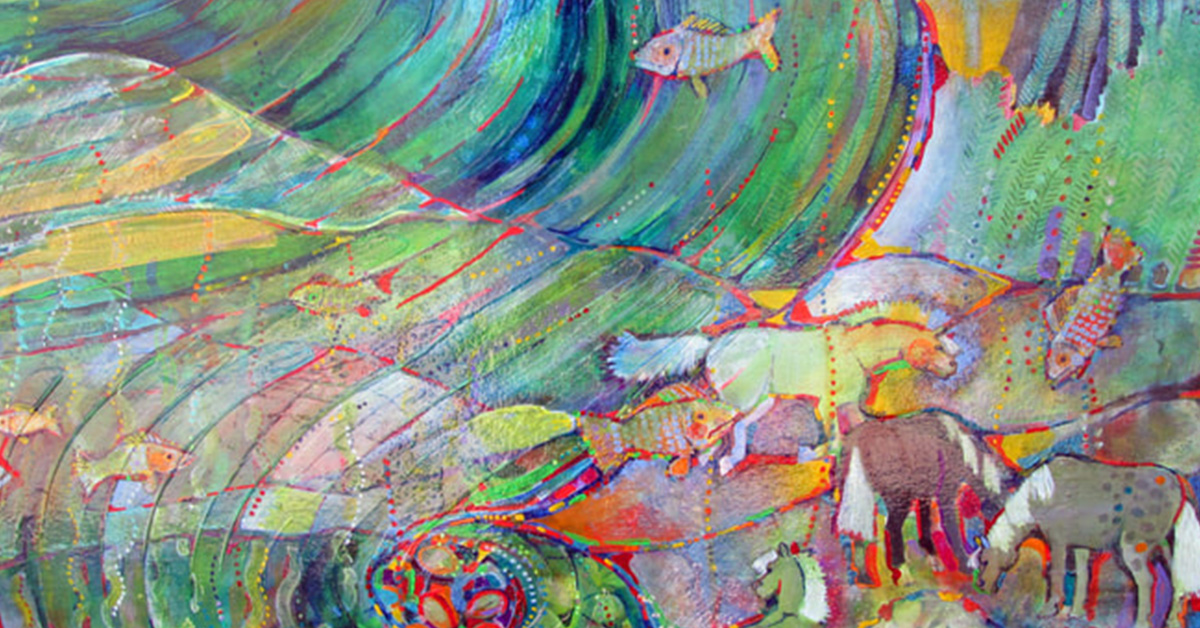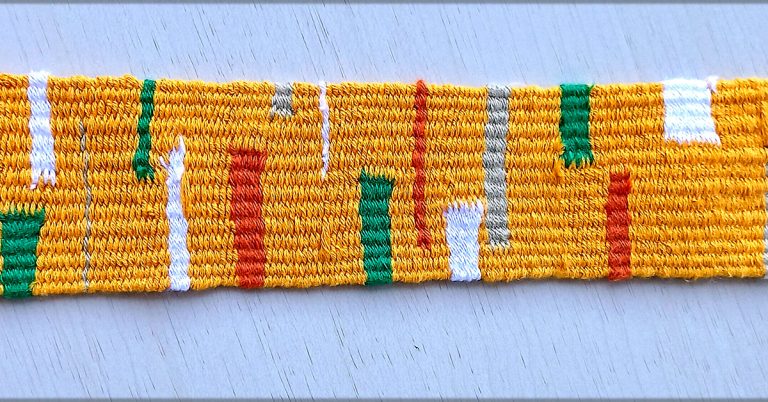
by David Rando
Tell us a bit about On Fiction and Being a Good Animal.
On Fiction and Being a Good Animal begins with a question: what if fiction could help us to become not better people but better animals? I suggest new, nonhuman reasons for reading and valuing fiction that respond directly to timely questions about how and where humans fit within a more-than-human world. Inspired by Theodor W. Adorno, I define a good human animal as one who does not live a life of domination. This is not an attained state, surely, but rather an ongoing process of assessing our ways of being and having been in the world. I argue that fiction read sensitively can help readers to strive toward such a life by envisioning self and world outside of human-centered perspectives and by picturing or inspiring better worlds from more-than-human perspectives.
What inspired you to write about fiction and good animals?
In my previous book, Doing Animal Studies with Androids, Aliens, and Ghosts, I explored how fictional creatures who were neither strictly human nor animal could estrange interspecies relationships in helpful and ameliorating ways. But when I got to the end of that, I found that I wanted to think more broadly about how fiction, nonhuman animals, and hope might fit together.
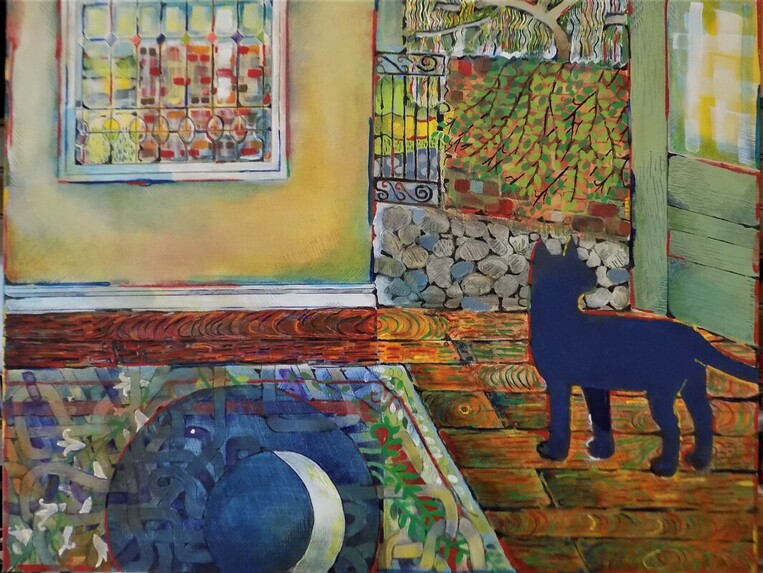
Simultaneously, other factors also led me to think about fiction’s nonhuman affordances: discussions with students in two courses that I teach, “Animal Studies and Modern Fiction” and “Animal Intersections”; Walter Benjamin’s amazing insight about reading Kafka’s animal stories that “you look up in fright and realize that you are already far away from the continent of man”; the animal paintings of my friend Elizabeth Wrightman (whose donkey she kindly allowed me to put on the book cover); and eventually several challenging and encouraging discussions by email with Dr Jackie Jones of Edinburgh University Press.
All of these helped me to envision reading fiction in a way that lets knowledge about animals kindle love instead of facilitate domination and helps us to discover better, less instrumental and destructive possibilities for interspecies relationships.
What was the most exciting thing about this project for you?
A lot of the excitement was in the writing itself. First, it was fun to spend so much time reading, thinking, and writing about the strange and wonderful fiction of Agustina Bazterrica, Leonora Carrington, Marian Engel, Takashi Hiraide, Franz Kafka, Clarice Lispector, Kenzaburo Oe, Olga Tokarczuk, and Jesmyn Ward. Second, I structured the book in short, digestible chapters that give very targeted readings of this fiction. This was a new way for me to conceive of the shape and pace of a scholarly book. I wanted to write an accessible and enjoyable book whose form fit its wishful content.
Has your research in this area changed the way you see the world today?
More than ever, I think about fiction and its value outside of purely human terms. Getting here has been a long but exhilarating process of learning to reconsider what fiction is and who and what it can tell us most about (hint: it’s not only about humans in a species vacuum). Getting here has also entailed unlearning some aspects of my training in the humanities, while also using the versatile tools of humanist study to peer beyond the human. Seeing fiction this way necessarily changes how I see the world and how I imagine what it means to act ethically within a wider context than the human world.
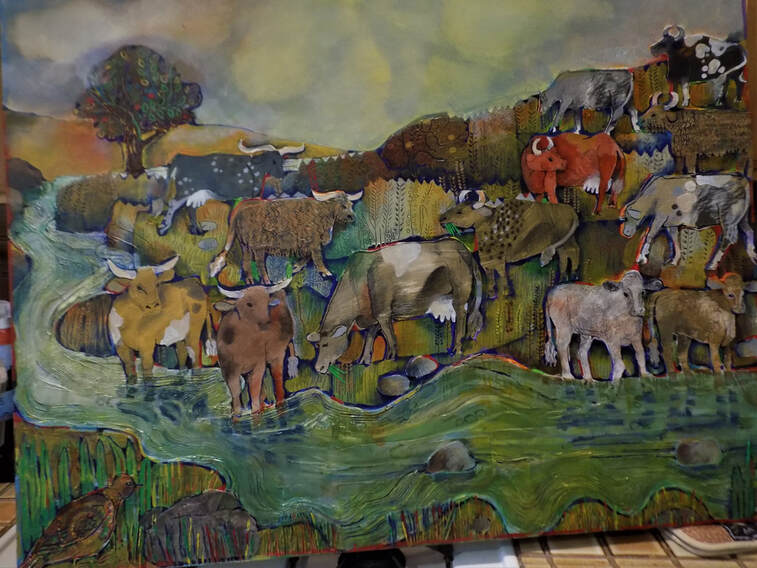
What’s next for you?
I’m imagining an ideal AI that can write great artificial fiction. Such an AI may never exist. But this project will not be a technological forecast. Instead, it’s a thought experiment that seizes on the thinkability of artificial fiction in our moment as a wishful image to see what far-flung vistas might appear through it, vistas that can help us to imagine what fiction is and what it can do. I want to imagine what fiction might be, how it might encompass larger swaths of life, consciousness, and experience than we are accustomed to reading about, and how it might open onto a more-than-human fictional world. Great artificial fiction would also force us to specify as “human fiction” what we have been so long accustomed to simply calling “fiction,” bringing its limitations, uniqueness, and value into sharper focus. The idea of this thought experiment is to imagine and foster a spirit of non-human-centeredness in all aspects of the way we think about fiction, from ideas about authorship and composition to those about reception, interpretation, and value.
Sign up to our mailing list to keep up to date with all of our free content and latest releases
About the book
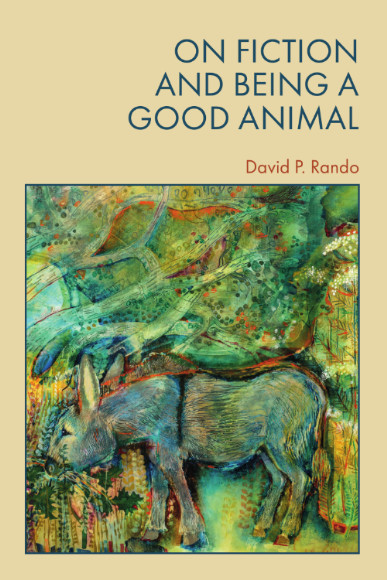
Argues that literature has a special role to play in developing a wishful, visionary, and utopian sensibility for living in a more-than-human world
- Suggests ways that fiction can provoke and amaze, inspire and frighten, delight and surprise readers into becoming better animals among nonhuman creatures and within the wider, nonhuman world
- Forges new connections between critical animal studies, critical social theory, and literary ethics
- Encourages readers to attend to the eccentricity of fiction by which we may discover the unseen presences of better worlds for human-nonhuman animal relationships
About the author
David P. Rando is professor of English at Trinity University in San Antonio, Texas USA. His scholarship explores hope, utopia, and wishful images as they relate to literature, technology, and nonhuman animals. His books include Modernist Fiction and News (2011); Hope and Wish Image in Music Technology (2017); Hope, Form, and Future in the Work of James Joyce (2022); Doing Animal Studies with Androids, Aliens, and Ghosts (2023); and On Fiction and Being a Good Animal (2024). His articles appear in Contemporary Literature, Critique, James Joyce Quarterly, Journal of Modern Literature, Journal of Popular Music Studies, Modern Fiction Studies, Postmodern Culture, and Twentieth-Century Literature.


